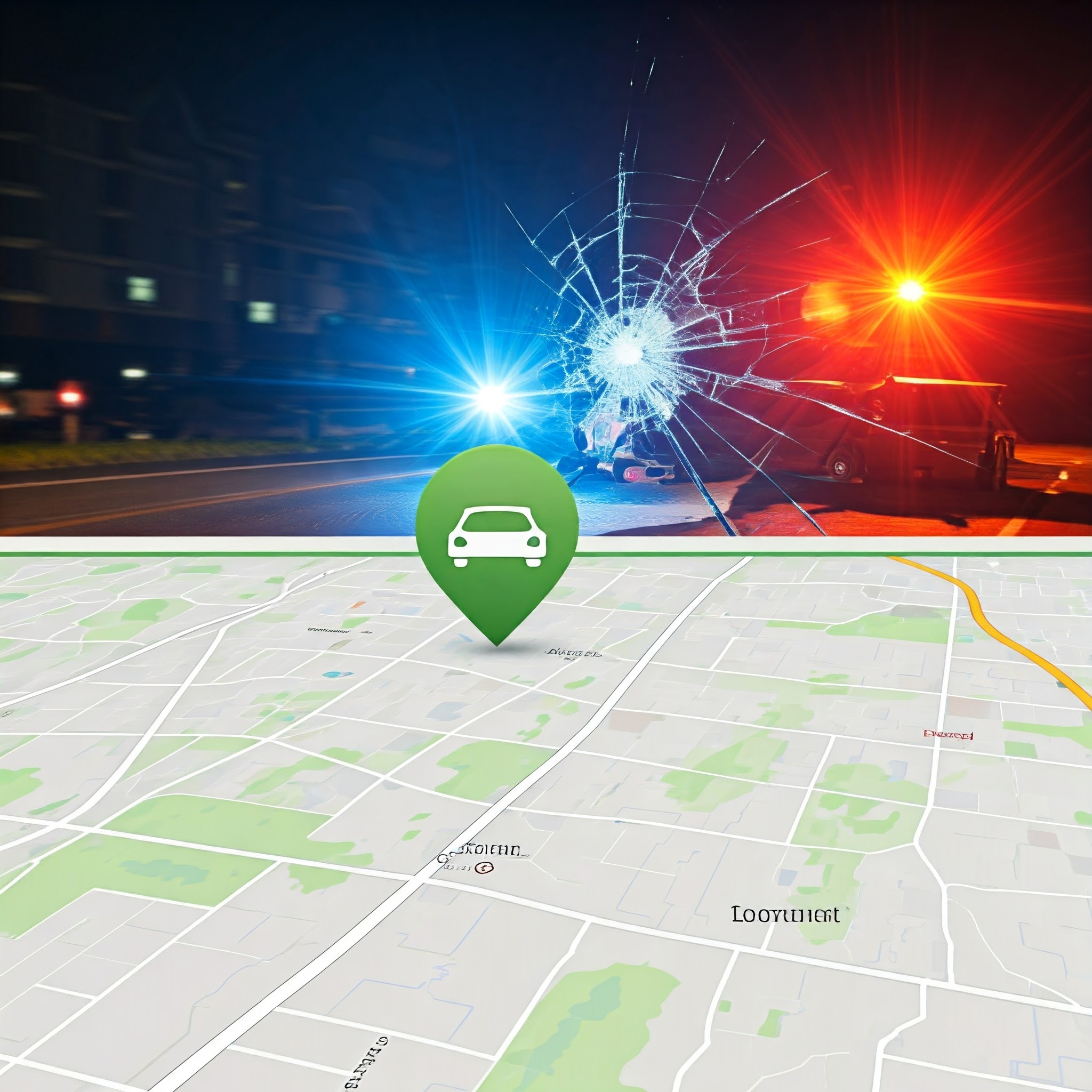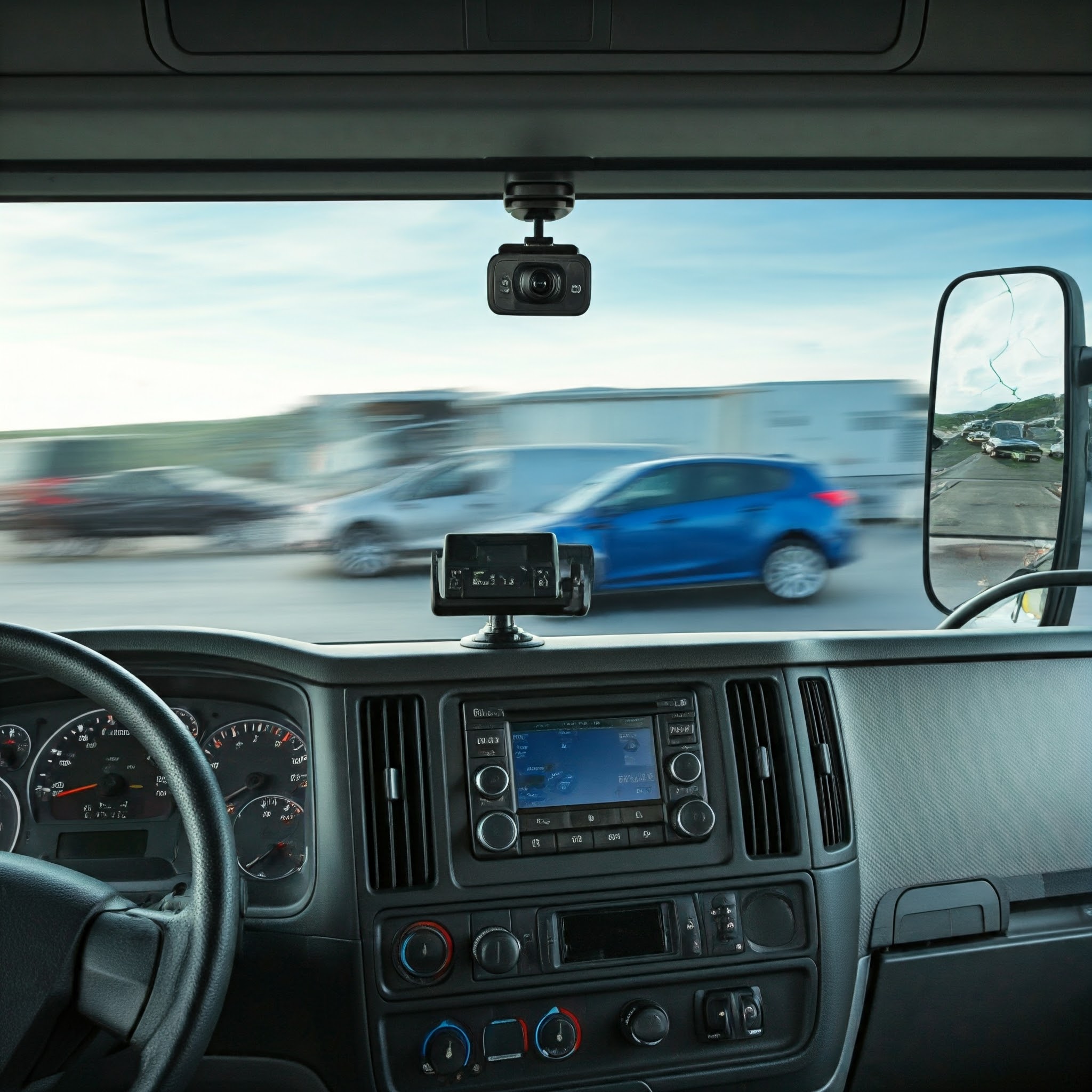Why Commercial Fleets Should Retain GPS and Dash Cam Evidence for Accident Defense
What would you do in a situation where your fleet is hit with a million-dollar lawsuit for an accident that wasn’t even your driver’s fault?
How would you defend your business in court when you weren’t the negligent party? What would happen if you were sued several months after an accident occurred?
This isn’t just a hypothetical situation. A trucking company in Tennessee found itself in a similarly precarious situation. Fortunately, the company had installed dash cams in their trucks right before the incident, and the footage revealed that the other driver had staged the accident. This evidence proved critical for the case, and the business avoided a $150,000 lawsuit. This example is a powerful reminder that dashcams and GPS tracking are game-changers when it comes to protecting your fleet.
Since 2018, more and more businesses have implemented dash cams as protection against situations like these. Nearly 40% of businesses that have adopted dashcams have done so within the past 20 months. GPS and dashcams help fleet operators keep an eye on their vehicles and protect drivers from false claims. This proactive approach reduces insurance premiums and strengthens your legal defense if you ever find yourself in this situation.
This guide will explore why getting your hands on GPS and dash cam evidence can make or break your accident defense. We’ll show you how these technologies can save your commercial fleet from huge financial risks and protect your reputation.
The Role of GPS and Dash Cam Evidence in Accident Investigations

When it comes to investigating an accident, it can be difficult to determine who was at fault — especially when the situation comes down to one driver’s word against another’s. This is where GPS tracking systems prove to be invaluable. Here’s how:
- Vehicle location and speed: GPS logs can show exactly where your fleet is at any given moment, along with the speed it was traveling. This can help decide if the driver was within the speed limit, if they braked before hitting another vehicle or if they changed lanes when the accident happened.
- Timeline of events: GPS data gives a clear timeline, starting from the time your vehicle left a location, how long it was in transit, and when the accident took place. If the case argues that the driver was distracted or fatigued, GPS data can prove how long the driver was operating the vehicle. This can counter the claim that your driver was overworked or fatigued.
- Route history: If your driver is sued for choosing unsafe driving routes or route deviation, then a GPS log can verify if the driver followed the designated route or not.
While GPS answers questions like who, what and when of an accident, dash cams visually show the how and why
Dashcam footage gives investigators, insurance companies and the courts a firsthand look at what actually happened during the accident. It can provide the critical details that give context to the accident by capturing road conditions, weather and traffic patterns.
Dash cams are excellent at observing driver behavior. If another driver was changing lanes, tailgating, or if they ran a red light, the dashcam footage would clearly show who was at fault for the accident. Staged accidents are another problem that fleet businesses have to deal with, where a driver intentionally causes a crash just to claim insurance money. Dash cam footage can expose such schemes by showing that your driver didn’t cause an accident.
Here’s why these matters: according to RTS Inc., more than 70% of commercial vehicle accidents are automatically blamed on the commercial driver. That is not a small number. Without the right tools to dispute these false claims, your business could face unjust penalties and have no way of proving who was really at fault in court. With GPS tracking and indisputable dash cam footage, you will always have the proof you need to show who was really responsible for causing an accident.
The Importance of Retaining Evidence for at Least a Year

Accidents are chaotic at the moment, but they can get messier if not handled the right way. Most people don’t report accidents immediately. In fact, fleet managers might not even learn about them until weeks or months later. This gap in time makes it critical for businesses to keep relevant data at hand. Whether it’s a minor fender bender or a more serious collision,
Keeping GPS and dash cam evidence with you for at least a year can help you protect your fleet if a claim is made." - RTS Inc
There are situations where drivers don’t report minor accidents, thinking that they can handle the situation on their own. However, this delay can put the management in a tough spot when legal claims come to light months later. Another reason to keep evidence with you for a longer period is the ever-changing statutes of limitations that vary for each state.
According to Maryland Personal Injury Lawyers, people can file accident claims for up to three years after the incident! This duration will change state by state. If you don’t have the relevant GPS and dashcam footage to support your case long after the accident, you are just defenseless in court. Too many businesses are blindsided by lawsuits long after an accident or on-road incident has occurred. Keeping your dash cam footage for a year or more gives you the extra protection you need from lawsuits.
How Often Are Commercial Drivers Found at Fault Without Evidence?
Commercial fleet drivers often find themselves blamed for accidents, especially when there’s no evidence for them to reverse the claim without any clear proof like dash cam footage or GPS data, both the insurance company and court are more likely to assume that the commercial driver is at fault. The scenario becomes even more aggravated when the incident involves a large vehicle like a bus or 18-wheeler and a small passenger vehicle
The Impact of Lack of Evidence
The effects of not having solid evidence are staggering. According to DAT Freight & Analytics, 80% of insurance claim costs are linked to just 10-12% of accidents. In fact, most of the cases lack evidence, which results in commercial drivers being blamed by default. The actual events leading to the crash don’t matter here. This can quickly add up to costly insurance claims, lawsuits and irreversible damage to your business’s reputation.
But why does this happen? DAT Freight & Analytics explains:
"Without visual or GPS evidence, the default assumption in many cases is that the larger vehicle or commercial driver was at fault."
Where there’s no evidence, the blame automatically falls on the driver behind the larger vehicle. If you operate a large vehicle or your business relies on large vehicles, don’t put yourself at risk! GPS data and dashcam footage are concrete proof that you need to paint an accurate picture of exactly how the accident played out.
Benefits of Retaining GPS and Dash Cam Evidence

Here’s how keeping GPS and dash cam evidence with you can make a real difference for your fleet.
Lower Insurance Premiums
Withholding evidence can help you lower insurance costs. When an accident occurs, insurance companies act quickly to raise premiums, especially when they notice that the commercial driver is found at fault. These premium increases are substantial, usually ranging from 20% to 50% after an at-fault incident.
But if you have GPS data and dash cam footage proving that your driver was not at fault, you can easily prevent these costly rate hikes. Using dashcam footage, you can clearly show the insurers what happened during the accident and avoid unnecessary strain on your finances.
Protection Against Fraud
Fraudulent claims can lead the way to expensive lawsuits, high insurance costs and a lot of wasted time for your business. Saving dashcam footage and GPS can be a powerful defense against such schemes. The camera here is an impartial witness who can help you prove how and why the other party was at fault. Having this evidence can prevent your business from falling victim to fraud, saving you from paying for damages you didn’t cause.
Driver Training Opportunities
Another hidden benefit of retaining dash cam footage is its value for driver training. Real-life examples of incidents—whether they resulted in an accident or not—can be incredibly useful for training and improving driver behavior. You can use these recordings to review situations where drivers could have reacted differently or highlight examples of excellent defensive driving.
This kind of targeted training not only helps prevent future accidents but also improves overall fleet safety. In the long run, better-trained drivers mean fewer incidents, reduced liability, and lower operating costs.
Best Practices for Retaining GPS and Dash Cam Data
Now that you know how important evidence is for defending your fleet against claims, you might be making plans to retain data from dashcam and GPS. Here are some best practices to follow:
Data Storage Solutions
Find a way to store GPS data that suits you, keeping in mind you can store it locally on a memory card or by having the data transfer to centralized storage.
Dashcam footage is in video format, and storing a large volume of such data can become a logistical challenge for a growing fleet. The most optimal solution is to use cloud-based storage. Cloud services can be accessible from anywhere and give you automated backups, so your data is safe from system failures. If you prefer a physical storage device, then make sure to choose one with redundancy, like RAID systems.
RAID, which stands for Redundant Array of Independent Disks, allows for more data storage with reduced risks of losing it due to hardware failures and an improved data storage and retrieving performance.
Retention Period Policies
You have to make sure the data is always at hand if you need it. Try to establish a minimum retention period for your GPS and dash cam recordings. A period of 12 months is a solid starting point, as it covers most legal requirements and the typical time frame within which claims may be filed.
Regular Reviews and Maintenance
Storing data is one thing but maintaining it and ensuring it’s usable is another. It’s important to regularly review your GPS and dash cam footage to ensure the data is still intact and hasn’t been corrupted or lost. This review process can also help identify any incidents that drivers may have overlooked or failed to report, giving you a clearer picture of your fleet’s activities.
some states, accident claims can be filed up to
three years after
the incident!2018
spacer
Accident Occurs
Accident Occurs Accident Occurs Accident Occurs Accident Occurs
2019
spacer
Evidence is Gathered
Evidence is Gathered Evidence is Gathered Evidence is Gathered Evidence is Gathered
2020
spacer
Claim Filed
Claim Filed Claim Filed Claim Filed Claim Filed
2018
spacer
Accident Occurs
Accident Occurs Accident Occurs Accident Occurs Accident Occurs
2019
spacer
Evidence is Gathered
Evidence is Gathered Evidence is Gathered Evidence is Gathered Evidence is Gathered
2020
spacer
Claim Filed
Claim Filed Claim Filed Claim Filed Claim Filed
Conclusion
We live in a hyper-connected world where critical accidents and fraudulent claims can cripple your business’s financial health and its reputation. Having GPS and dash cam evidence is like having eyes and ears added to your fleets, collecting crucial details that could make a difference between defending your drivers and paying out hefty claims. But only keeping your dash cam footage and GPS data for a few weeks or a few months won’t help. Businesses must adopt a long-term data retention plan, or they’ll be susceptible to lawsuits following an accident.
By adopting comprehensive data retention policies, regularly reviewing footage, and investing in reliable storage solutions, you make sure that your fleet is always prepared.
Make the smart choice: secure your fleet’s future with quality GPS and dash cam systems.
References and Links
Posted by Todd Morris on Dec 23rd 2024


